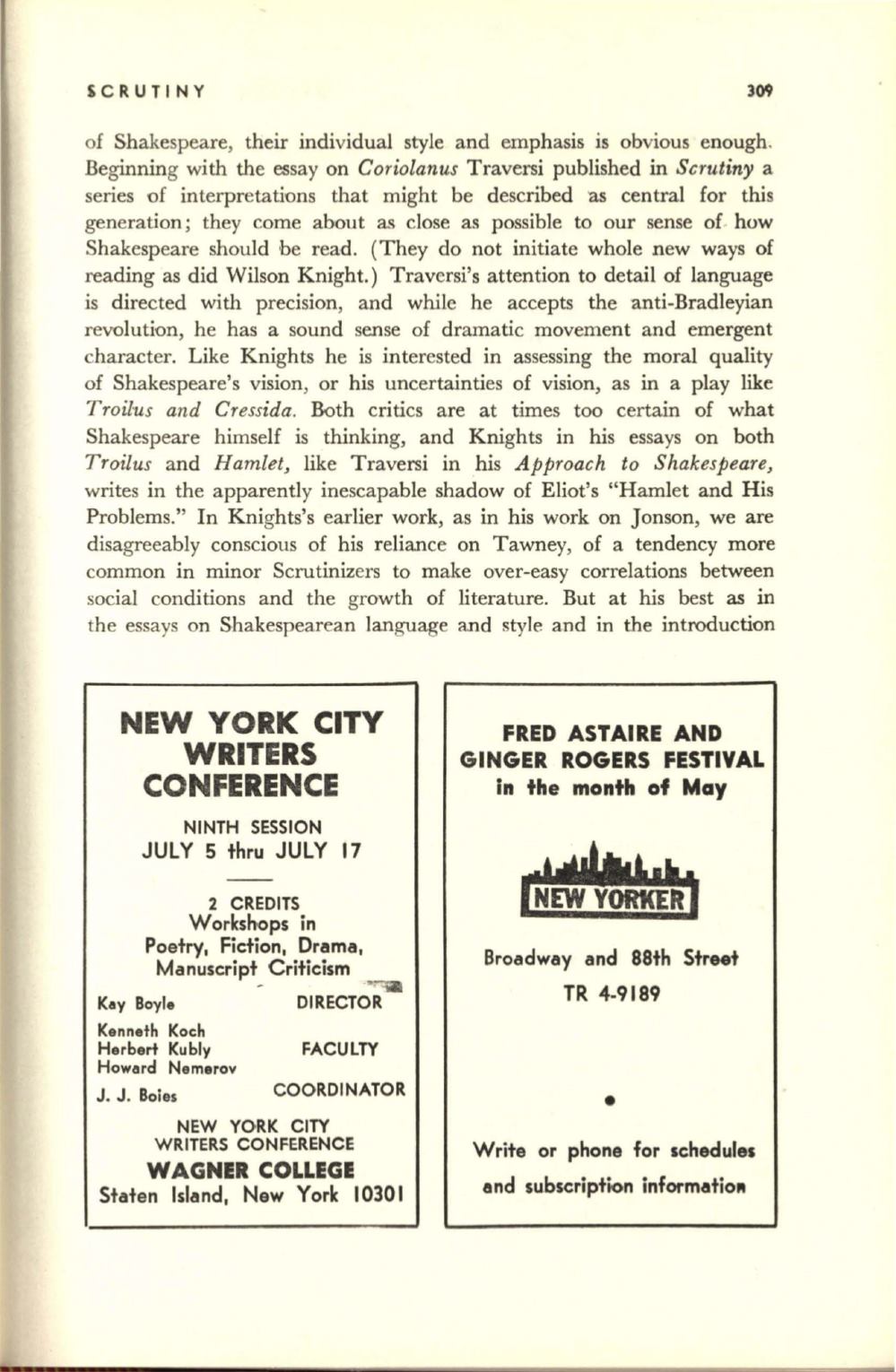
'C RUTI N Y
309
of Shakespeare, their individual style and emphasis is obvious enough.
Beginning with the essay on
Coriolanus
Traversi published in
Scrutiny
a
series of interpretations that might be described as central for this
generation; they come about as close as possible to our sense of. how
Shakespeare should be read. (They do not initiate whole new ways of
reading as did Wilson Knight.) Traversi's attention to detail of language
is directed with precision, and while he accepts the anti-Bradleyian
revolution, he has a sound sense of dramatic movement and emergent
character. Like Knights he is interested in assessing the moral quality
of Shakespeare's vision, or his uncertainties of vision, as in a play like
Troilus and Cressida.
Both critics are at times too certain of what
Shakespeare himself is thinking, and Knights in his essays on both
Troilus
and
Hamlet,
like Traversi in his
Approach to Shakespeare,
writes in the apparently inescapable shadow of Eliot's "Hamlet and His
Problems." In Knights's earlier work, as in his work on J onson, we are
disagreeably conscious of his reliance on Tawney, of a tendency more
common in minor Scrutinizers to make over-easy correlations between
social conditions and the growth of literature. But at his best as in
the essays on Shakespearean language and style and in the introduction
NEW YORK CITY
WRITERS
CONFERENCE
NINTH SESSION
JULY 5 thru JULY 17
2 CREDITS
Workshops in
Poetry, Fiction, Drama,
Manuscript Criticism
Kay Boyle
DIRECTOR
Kenneth Koch
Herbert Kubly
Howard Nemerov
J. J.
Boies
FACULTY
COORDINATOR
NEW YORK CITY
WRITERS CONFERENCE
WAGNER COLLEGE
Staten Island, New York 10301
FRED ASTAIRE AND
GINGER ROGERS FESTIVAL
in the month of
May
Broadway and 88th Street
TR 4-9189
•
Write or phone for schedules
and subscription informatio..


